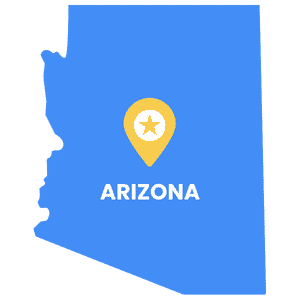Pennsylvania State Information Page
Current Legality State – Pennsylvania
Medical
- Medical Program only
- Not decriminalized statewide; local decriminalization in some areas
- Possession is not allowed recreationally; a 30 day supply is allowed for medical patients, but they can not refill the prescription until the last seven days each month
- Cultivation without a license and home growing is illegal.

Current Legality State
Medical

- Medical Program only
- Not decriminalized statewide; local decriminalization in some areas
- Possession is not allowed recreationally; a 30 day supply is allowed for medical patients, but they can not refill the prescription until the last seven days each month
- Cultivation without a license and home growing is illegal.
Your cannabis AI assistant
Tailored recommendations for your favorite
Sign up below for early access
*By signing up, you agree to the Terms and Conditions and Privacy Policy.
California residents, see our CA Privacy Notice.
Is Cannabis Legal In Pennsylvania ?
Medical cannabis is legal in Pennsylvania, and there is a complete medical program established under the medical marijuana laws within the state with several state-approved dispensaries for patients with a qualifying medical condition.
While marijuana has yet to be decriminalized statewide, some Pennsylvania cities and counties have approved the decriminalization of minor possession and updated local marijuana laws.
State Laws and Offenses
Here’s a list of penalties for Pennsylvania’s possession, sale, and distribution of marijuana, concentrate, or paraphernalia.
- Marijuana is a Schedule I drug in the state of Pennsylvania
- According to the federal government, cannabis is still considered a Schedule I Controlled Substance under federal law.
- Simple possession of small amounts (30 grams or less of flower or eight grams or less of hashish) is a criminal offense with up to 30 days of jail time or a 500 USD fine
- Distribution of 30g or less of marijuana without compensation is a misdemeanor with penalties of up to 30 days and up to a year in prison and a fine of up to 500 USD.
- The sale of more than 30 grams is a felony punishable by 2.5 – 5 years in jail and a 15,000 USD fine for a first offense. And between 20 years and life imprisonment.
- Possession charges or selling paraphernalia is a misdemeanor punishable with a maximum of 6 – 12 months incarceration and a fine of not more than 2,500 USD.
- Growing marijuana, even with no intention of selling it, is a felony and is punishable by 2.5 to 5 years in prison and 15,000 USD in fines. The Pennsylvania Sentencing Guidelines state that possession with intent to deliver less than ten plants is a felony and there are double penalties for subsequent offenses.
Find Pennsylvania Dispensaries Nearby Find DispensariesConnect With A Doctor
Pennsylvania Qualifying Conditions For Medical Marijuana
Qualifying conditions for Pennsylvania’s medical marijuana program are:
- Amyotrophic lateral sclerosis
- Anxiety disorders
- Autism
- Cancer, including remission therapy
- Crohn’s disease
- Damage to the nervous tissue of the spinal cord with an objective neurological indication of intractable spasticity
- Epilepsy
- Glaucoma
- HIV/AIDS
- Huntington’s disease
- Inflammatory bowel disease
- Intractable seizures
- Multiple sclerosis
- Neurodegenerative diseases
- Neuropathies
- Spastic movement disorders
- Opioid use disorder for which conventional therapeutic interventions are contraindicated or ineffective, or for which adjunctive therapy is indicated in combination with primary therapeutic interventions
- Parkinson’s Disease
- Post-traumatic stress disorder
- Severe, chronic, or intractable pain of neuropathic origin or severe chronic or intractable pain in which conventional therapeutic intervention and opiate therapy is contraindicated or ineffective
- Sickle cell anemia
- Terminal illness
Does Pennsylvania accept out-of-state medical cards?
No. Pennsylvania law does not accept an out-of-state medical marijuana ID card.
When does my Pennsylvania medical card expire?
Medical cards expire one year from the date the patient completes the registration process with the state.
Get a Pennsylvania Medical Marijuana Card
Pennsylvania marijuana DUI laws
Pennsylvania does not allow impaired driving under the influence of any Schedule I controlled substances, including marijuana.
Pennsylvania marijuana growing laws
Growing cannabis at home for personal use is not allowed in Pennsylvania.
Pennsylvania public consumption laws
Pennsylvania does not specify where medical cannabis can be used; however, smoking is prohibited statewide, recreational use is illegal, and residents are not allowed to possess marijuana in public.
Pennsylvania city specific laws
The laws listed here are for the state. Cities, counties, schools, universities, and employers may set their own rules and consequences. Be sure to check how marijuana laws differ in each county or town before you use.
How to get a medical marijuana card in Pennsylvania
These are the steps to getting a medical marijuana card with the help of Leafy DOC
-
Book An Appointment
- You will schedule an online appointment with a Leafy DOC medical marijuana doctor at a time that is most convenient for you.
- Provide basic medical history and book your appointment with a licensed medical marijuana doctor.
-
Evaluation
- Consult with a doctor for 15 minutes to evaluate your ailments, and ask any questions you may have about medical marijuana treatment.
-
Approval
- Within 24 hours after the evaluation, the doctor will send your certificate via email for your recommendation for medical marijuana.
- After receiving that recommendation, you can then apply with the state of Pennsylvania to complete the registration process.
-
Complete Registration
- Complete your registration on the state website using the electronic certificate our doctor will issue.

Book your appointment
- Easily make appointment online
- Skip unnecessary doctor office visits
- Provide basic medical history

Match with a Doctor
- Connect w/ the right doctor for you.
- Thorough evaluation via phone or video call.
- Provider will answer any questions.

Get your Medical Card
- Upon Approval you’ll receive confirmation email
- Receive a temporary card or card in the mail
- Enjoy the benefits of being a medical card holder!
Cannabis Policy Reform Timeline
2016: Governor Wolf signed Senate Bill 3, legalizing cannabis for medical use for patients under seventeen qualifying conditions.
2017: In a second hearing, Pennsylvania Democratic State Committee urges the Democratic Party to support a cannabis legalization bill
2018: House Bill 163 is passed with the slogan “Smoke a Joint, Lose Your License.” This senate law makes it so that anyone caught possessing illegal drugs will lose their driver’s license for a mandatory six-month period.
2019 and 2020: Gov Wolf urges Pennsylvania lawmakers to reconsider the cannabis legalization bipartisan legislation for economic purposes. The Upper Darby Township approved local decriminalization for minor possession.
2021: Due to an established legislative panel, improvements were made to the Pennsylvania law regarding the medical marijuana program. Keystone state college is now doing cannabis testing for the medical program. Senators Tom Wolf, Dan Laughlin, and Sharif street introduced a bipartisan bill to legalize cannabis for adult use. The mission is as follows:
“An Act amending Titles 35 and 75 of the Pennsylvania Consolidated Statutes, providing for adult-use cannabis, for medical marijuana, for lawful use and authority and for the personal use of cannabis, establishing the Cannabis Regulatory Control Board, providing for regulation of cannabis business establishment, for advertising, marketing, packaging, and labeling, for taxes and for cannabis clean slate; and, in driving after imbibing alcohol or utilizing drugs, further providing for driving under influence of alcohol or controlled substance and for authorized users, not a defense.”
2022: Legislation is pending to decriminalize cannabis statewide and establish a regulated market for regulated sales of marijuana. After Senator Mike Regan called the hearing, It is likely voters will approve adult-use marijuana possession and use, similar to other states in the area.
Some of the Current Cannabis Bills in Pennsylvania
- PA HB878 – In driving after imbibing alcohol or utilizing drugs, further providing for definitions, for driving under influence of alcohol or controlled substance and for authorized use not a defense.
- PA HB549 – In medical marijuana controls, further providing for grower/processors; and, in dispensaries, further providing for facility requirements.
- PA SB76 – In patients, providing for cultivating cannabis for personal use.
Learn more about Cannabis legalization in Pennsylvania:
- https://www.health.pa.gov/topics/programs/Medical%20Marijuana/Pages/Medical%20Marijuana.aspx
- https://www.pennmedicine.org/for-patients-and-visitors/patient-information/medical-marijuana-therapy/medical-marijuana-faqs
- https://www.mpp.org/states/pennsylvania/
- https://norml.org/laws/pennsylvania-penalties-2/









